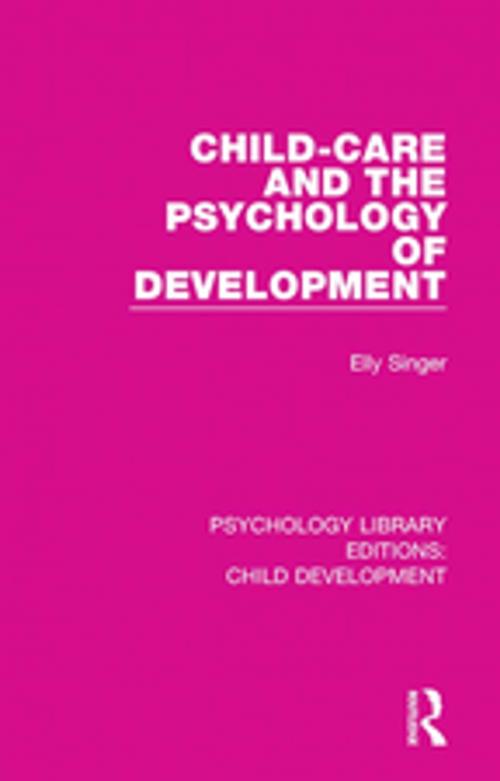Child-Care and the Psychology of Development
Nonfiction, Health & Well Being, Psychology, Child & Adolescent, Child Development| Author: | Elly Singer | ISBN: | 9781351678230 |
| Publisher: | Taylor and Francis | Publication: | December 6, 2017 |
| Imprint: | Routledge | Language: | English |
| Author: | Elly Singer |
| ISBN: | 9781351678230 |
| Publisher: | Taylor and Francis |
| Publication: | December 6, 2017 |
| Imprint: | Routledge |
| Language: | English |
Are child-care centres good for children? How can we provide good day-care? Feminists have long argued for the provision of day-care facilities so that mothers may be free to work outside the home. The call had enjoyed little support from politicians and experts, however. Feminists had been seen to stand for women’s interests, and psychologists and pedagogues for children’s – as if the two were opposed. Only in the early 1990s had the opinions of politicians and experts begun to change. Yet, even so, a positive policy on day-care was still lacking.
Originally published in 1992, Elly Singer’s exciting book shed a fresh and critical light on its subject. She exposes the preoccupations and contradictions of mainstream developmental psychology and its experts, shows how their theories blind them to many important questions, and reveals the almost total denial by mainstream psychology of the daily realities of parents and their children at the time. Elly Singer then proposes fresh ways of thinking to meet the new and different circumstances in which children and parents find themselves in contemporary society.
Are child-care centres good for children? How can we provide good day-care? Feminists have long argued for the provision of day-care facilities so that mothers may be free to work outside the home. The call had enjoyed little support from politicians and experts, however. Feminists had been seen to stand for women’s interests, and psychologists and pedagogues for children’s – as if the two were opposed. Only in the early 1990s had the opinions of politicians and experts begun to change. Yet, even so, a positive policy on day-care was still lacking.
Originally published in 1992, Elly Singer’s exciting book shed a fresh and critical light on its subject. She exposes the preoccupations and contradictions of mainstream developmental psychology and its experts, shows how their theories blind them to many important questions, and reveals the almost total denial by mainstream psychology of the daily realities of parents and their children at the time. Elly Singer then proposes fresh ways of thinking to meet the new and different circumstances in which children and parents find themselves in contemporary society.















